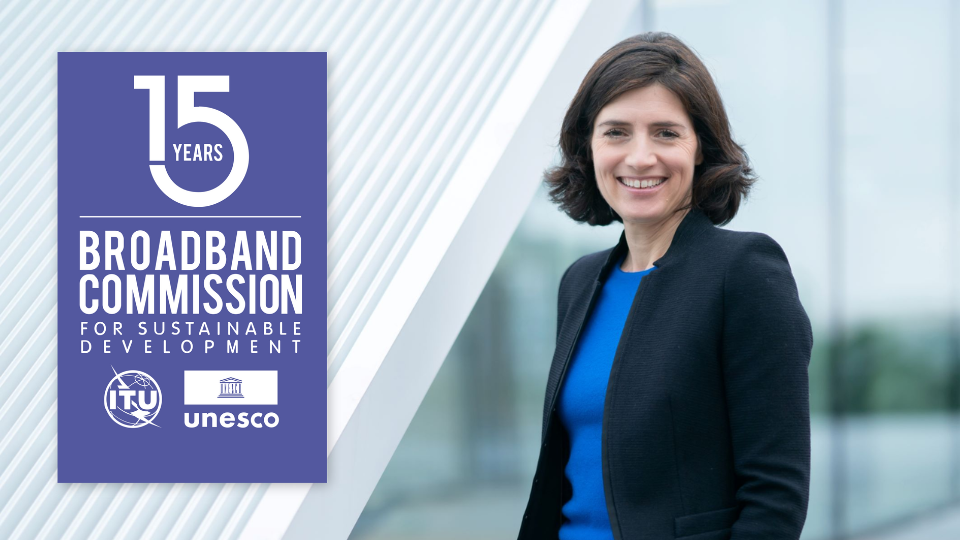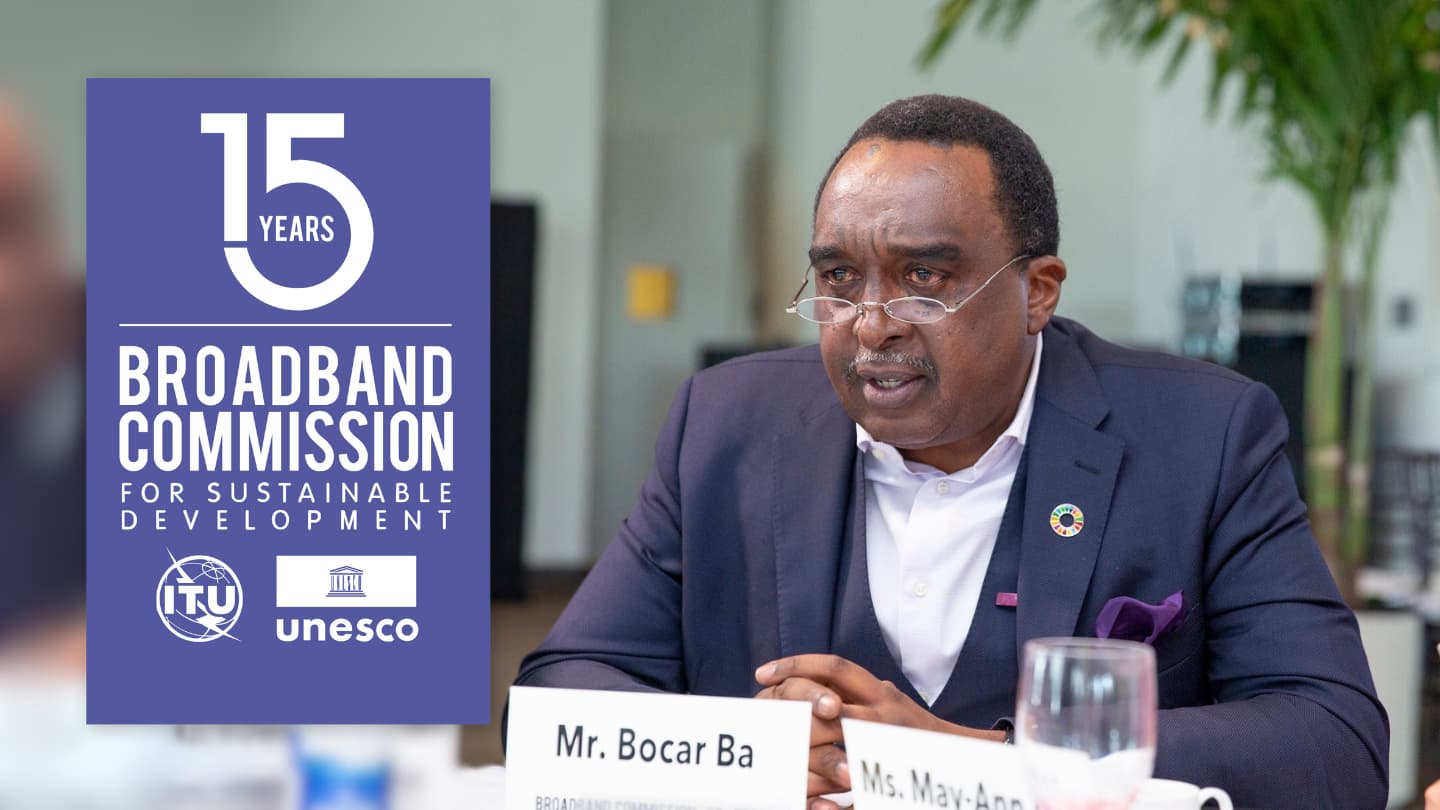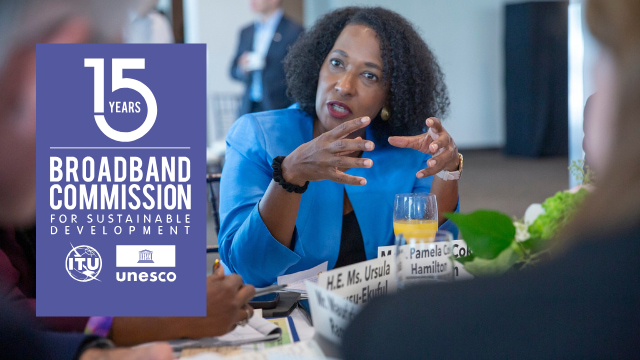
Implementing the Doha Programme of Action 2022-2031: Leveraging the power of technology, innovation and partnerships: from potential to prosperity
Organized by UN-OHRLLS – the Office of the High Representative for Least Developed Countries, Landlocked Developing Countries and Small Island Developing States, the 5th United Nations Conference on the Least Developed Countries (LDC5) is a once-in-a-decade event for gaining international support and fostering partnerships to advance sustainable development in the 46 Least Developed Countries by 2030, helping them make progress on the road to prosperity.
Due to the COVID-19 pandemic, LDC5 is being held in two parts. The first part, (Part 1), took place at UNHQ in New York on 17 March 2022, where the Doha Programme of Action (DPoA) was adopted, focusing on 6 key areas
- Investing in people, eradicating poverty and building capacity
- Leveraging the power of science, technology & innovation
- Supporting structural transformation as a driver of prosperity
- Enhancing international trade and regional integration
- Tackling climate change, COVID-19 & building resilience
- Mobilizing international partnerships for sustainable graduation
At the Conference, the UN Member States and stakeholders addressed:
- Undertake a comprehensive appraisal of the implementation of the Istanbul PoA;
- Mobilize additional international support measures and action in favor of LDCs; and
- Agree on a renewed partnership between LDCs and their development partners to overcome structural challenges, eradicate poverty, achieve internationally agreed development goals and enable graduation from the LDC category.
They also addressed the state of connectivity among LDCs, as published in ITU’s Facts and Figures: Focus on Least Developed Countries. The research highlighted that accessing the internet in LDCs is more costly than anywhere else. The price of a benchmark mobile broadband basket with 2 GB monthly allowance in a typical LDC amounts to almost 6 per cent of the average income – around four times the typical world price of 1.5 per cent. Only 2 LDCs met the UN Broadband Commission’s affordability 2 per cent target.
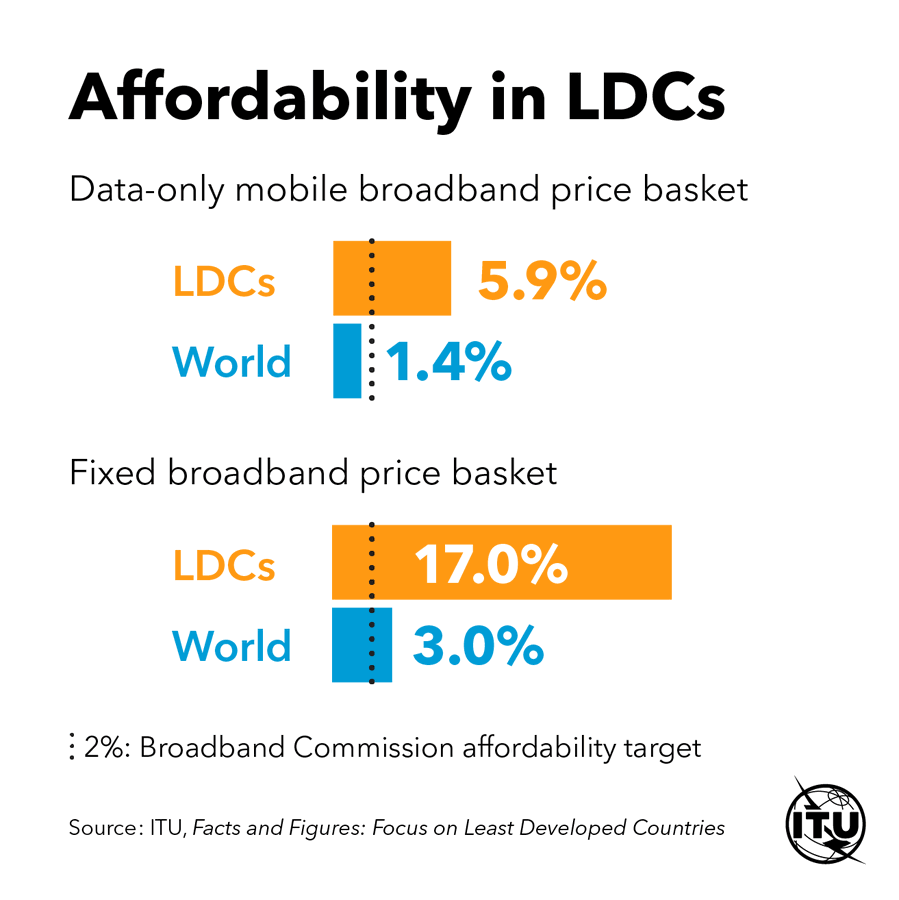
The DPoA commits to promoting partnerships with the private sector to leverage in full their capacity for entrepreneurship, innovation, private finance, and investment which is vital for LDCs to achieve the Sustainable Development Goals and targets of the 2030 Agenda over the coming decade.

Private Sector Forum
The Conference Programme also includes a Private Sector Forum (PSF), from 5-7 March 2023, co-organized by UN-OHRLLS and Microsoft, in partnership with the Qatar Chamber of Commerce & Industry, to promote engagement with the private sector and mobilize partnerships, innovation along with investments in the LDCs.
Connectivity is one of the five themes of the Private Sector Forum. Digital technologies are becoming increasingly important for the economic growth and international competitiveness of countries’ economies as well as being a vector of prosperity for the local populations. Due to the Covid-19 pandemic, digitalization and the connectivity of the world have accelerated even more during the last three years. At the same time, the pandemic sharply magnified the consequences of the digital divide and today, 2.7 billion people are still without broadband and are unable to access public services or learn from home. Many small and medium enterprises (MSMEs), particularly in LDCs, were caught off-guard following the introduction of quarantines and were unable to pivot swiftly to online operations to sell products and services. Further proving that access to the internet is crucial for all, especially in LDCs which are the availability, the accessibility, and the skills.
The Commission’s work highlighted two key ingredients to reach universal meaningful connectivity: first, a conducive regulatory environment for broadband services to attract the vast investment needed to support a more digital world; second, strategies and policies to enable broadband adoption and accelerate digital inclusion. As highlighted by the Broadband Commission in the latest State of Broadband report 2022:
"There is a need for massive investment in broadband to bring it up to speed with the new post-COVID-19 world. Higher capacity and lower latency is needed to support videoconferencing for those who can work from home as well as remote learning in the event of future pandemics or other disruptions to school learning. The pandemic also magnified the existing digital divide and need to build out broadband infrastructure where there is no access. To facilitate this, governments could allocate sufficient amounts of spectrum on a competitive basis, prioritizing the larger benefits of investment in connectivity rather than the collection of high spectrum fees. In addition, governments could make licensed spectrum available on a flexible use and technology-neutral basis and not dictate technologies/architectures to be used."
The Private Sector Forum Thematic Session 3: Digital Connectivity, looked at the digitalization of the LDCs and its three dimensions, (1) availability (2) accessibility and (3) ICT skills, and what should be done in collaboration with the private sector to strengthen these dimensions. This session took place at 15.00-16.45 on 6 March.
In addition, the Broadband Commission was featured at the Private Sector Forum side event on March 6th organized by Partner2Connect (P2C) – Accelerating the DOHA Program of Action through partnerships for meaningful connectivity and digital transformation. Commissioners, among other pledgers, will present and explore P2C commitments that support the implementation of the Doha Programme of Action.
You can follow the Commission’s engagement in LDC5 on our event page.
Open Statement
The Broadband Commission has revised its Open Statement to LDC5 to include the most up to date statistics on ICTs in LDCs. For example, in 2022 only 36% of the population was online, in the world’s 46 LDCs. Only two of the LDCs met the target with respect to the data-only mobile broadband basket in 2022, among the 103 economies worldwide. Additionally, only one was an LDC that met the target with the fixed broadband basket, of the 71 economies.
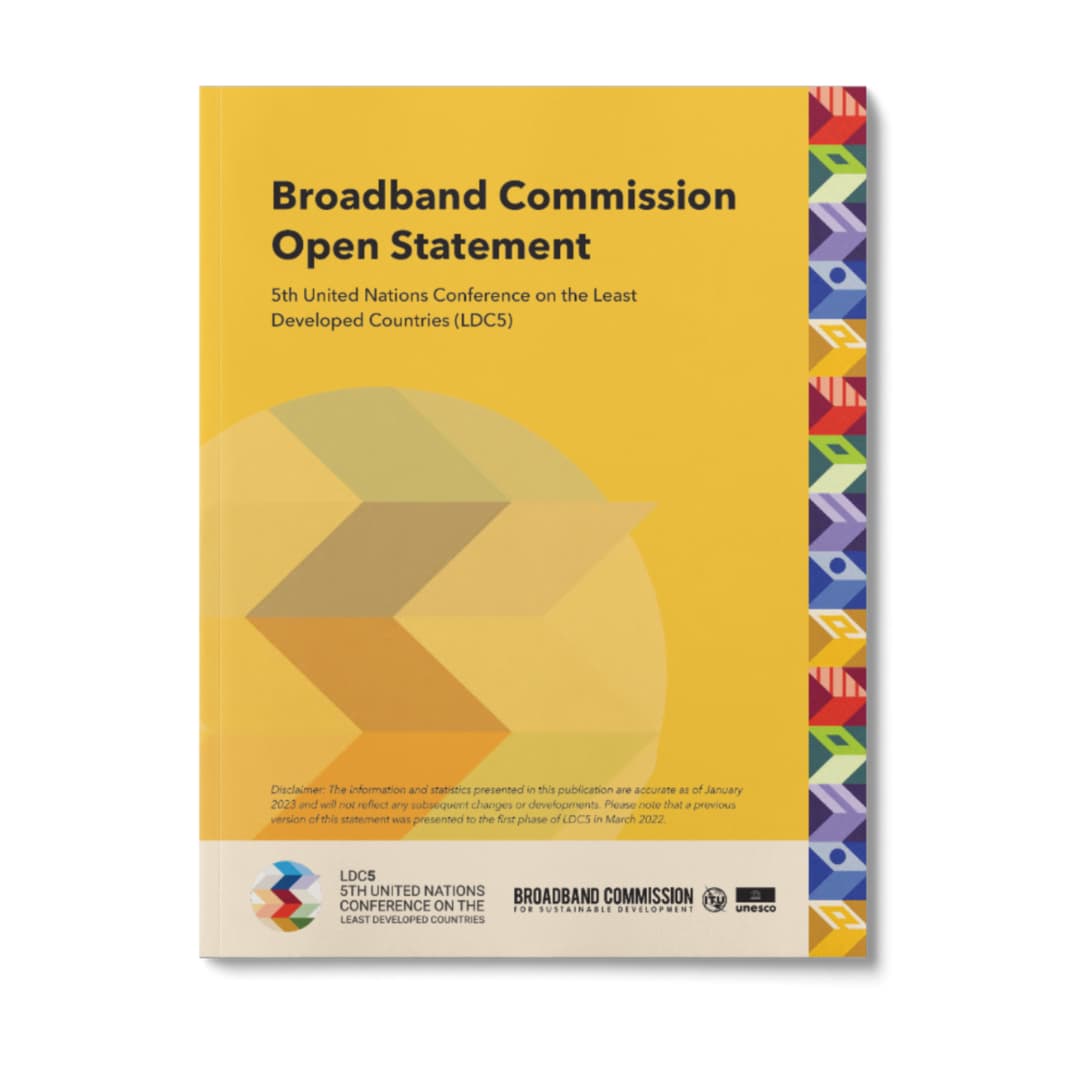
To reflect the continued work and commitments of Commissioners in the area of digital connectivity for LDCs, the Open Statement also highlights the recent Broadband Commission Working Groups on Smartphone Access and Connectivity for MSMEs, which are conducting research and case studies to develop policy recommendations and action plans for increasing access and use of broadband services and devices in LDCs.

